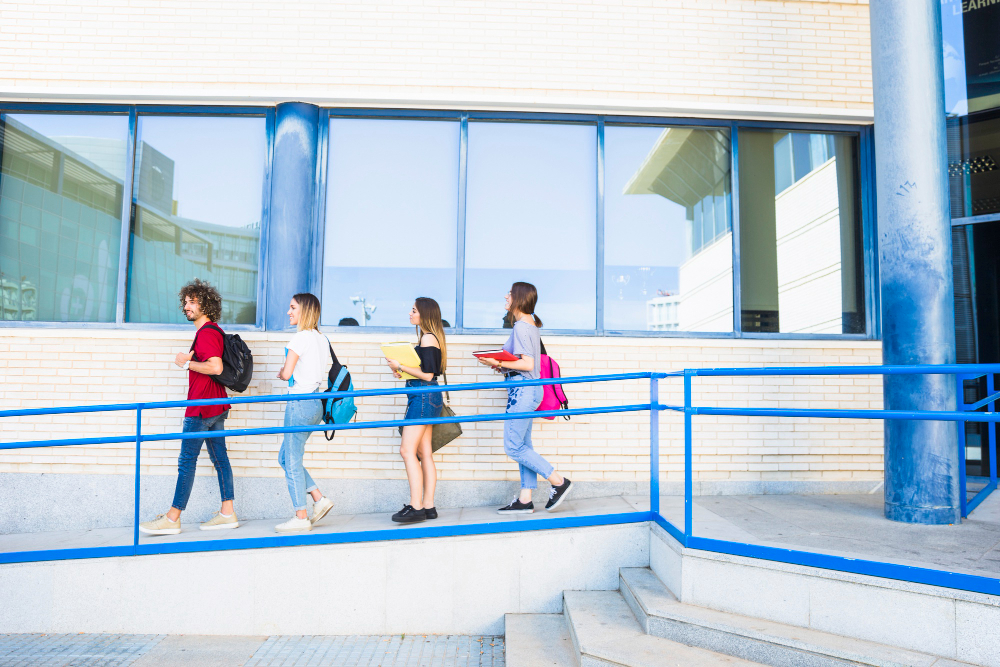
Embarking on the journey of secondary school is a thrilling adventure, buzzing with new experiences and opportunities for your child. As a parent, you wield a magical compass to guide them through this transformative phase. Imagine being the navigator of their ship, steering them towards a smooth transition that’s filled with confidence and excitement. Ready to embark on this voyage of wisdom? Here, we unveil a treasure trove of simple yet potent tips, ensuring your child sails through secondary school in an exhilarating odyssey they’ll treasure forever. So let’s understand how this blog can help and prepare them for Secondary school.
What to Expect from Secondary Schools in Singapore?
Starting secondary school marks a new and exciting chapter in your educational journey. As your child transitions from primary to secondary school, there are several important aspects to understand about class structure, workload, and the challenges they might encounter. Let’s understand everything in detail.
- Class Structure: Secondary school often involves a more diverse range of subjects compared to primary school. They have different teachers teaching various subjects, which means they will be moving from one classroom to another for each class. This change will be a bit challenging at first, but they will quickly adapt to the routine.
- Subject Specialisation: They will have the opportunity to choose elective subjects or focus on specific areas of interest. This can be exciting as it allows them to explore subjects they are passionate about and discover new talents.
- Workload: Be prepared for a slightly heavier workload in secondary school. They will have more subjects to study and more assignments to complete. Time management and organisational skills will become their allies as they will have to balance studies with extracurricular activities and personal time.
- Homework and Assignments: Homework will become a regular part of their routine. They will receive assignments and projects that require independent research and critical thinking. Encourage them to start assignments early to avoid last-minute stress and to produce their best work.
- New Challenges: As they will progress in secondary school, they will encounter new academic challenges. The content might become more complex and they have to study harder to grasp certain concepts. Convey them the message that challenges are opportunities for growth, and seeking help from teachers or peers when needed is a sign of strength and not weakness.
- Time Management: Secondary school demands better time management skills. They will have to allocate time for studying, completing assignments, participating in extracurricular activities, and enjoying leisure activities. Learning to prioritise tasks and manage time effectively will be crucial.
- Tests and Exams: Tests and exams will become more significant in secondary school. Regular quizzes and larger assessments will gauge their understanding of the material. Developing good study habits early will help them perform well on these evaluations.
- Social Dynamics: The school provides an opportunity to make new friends and broaden social circles. Encourage them to meet new people and participate in school clubs and activities. Friendships play a vital role in making the school experience enjoyable.
- Responsibility and Independence: With more subjects and teachers, they will have to take more initiative in managing their studies. Ask them to keep track of assignments, deadlines, and study schedules. This increased responsibility will prepare them for higher levels of education and adulthood.
- Personal Growth: It is a time of personal development and exploration. Students will develop resilience, problem-solving skills, and a greater sense of independence. Encourage them to embrace these opportunities to learn and evolve as they navigate this new phase.
Tips from Private Primary School for a smooth transition to a higher grade.
- Begin Conversations Early: Start talking to your child about secondary school well before it begins. Share your own positive experiences and listen to their thoughts and feelings. Address any worries they may have and assure them that it’s normal to feel a mix of excitement and nervousness.
- Tour the School: If possible, take a tour of the new school together. Familiarise yourselves with the layout, classrooms, cafeteria, and other important areas. This can help alleviate anxiety by making the environment feel less unfamiliar.
- Attend Orientation Events: Many Private Primary School organise orientation events for new students and their families. Check these events to know more about school criteria, meet teachers, and connect with other parents and students. This will help your children see that many students like them are undergoing transition.
- Provide School Supplies: Help your children get organised by shopping for school supplies together. Make a checklist of items they’ll need such as notebooks, pens, and a backpack as it will help them feel prepared and excited for the new journey.
- Practise: If your child will be travelling to school on their own, practise the journey a few times before the first day as it will give them confidence in navigating the route.
- Establish a Routine: Start getting into the school routine a few weeks before school begins. Set consistent bedtimes and wake-up times to ensure your child is well-prepared and ready for the day.
- Encourage Independence: Primary school often comes with more responsibilities. Prepare them to take tasks like packing their own bag, preparing their lunch, and managing their homework. This will boost their confidence and sense of responsibility.
- Build Study Skills: Talk to your child about the importance of good study habits. Help them set up a quiet, well-lit study space at home. Teach them time-management techniques and offer assistance when they need it.
- Foster Social Connections: Encourage your child to participate in extracurricular activities that interest them. Friendships are important, especially during transitions. Participating in extracurricular activities is a great way to make new friends who share similar interests.
- Keep Communication Open: Let your child know that they can always share their experiences and feelings with you. Ask them about their day, and be a source of support as they navigate this new phase.
Conclusion
Entering primary or secondary school is an exciting journey filled with new experiences, challenges, and opportunities. By understanding the whole process in advance your child will be prepared to make the most of their educational journey. Remember that with great determination, a positive attitude, and a willingness to learn and prepare they can excel and thrive in this exciting phase. By taking these simple steps, you can help them feel confident and prepared. Your support, encouragement, and open communication will make all the difference in their smooth transition to Secondary School in Singapore.

